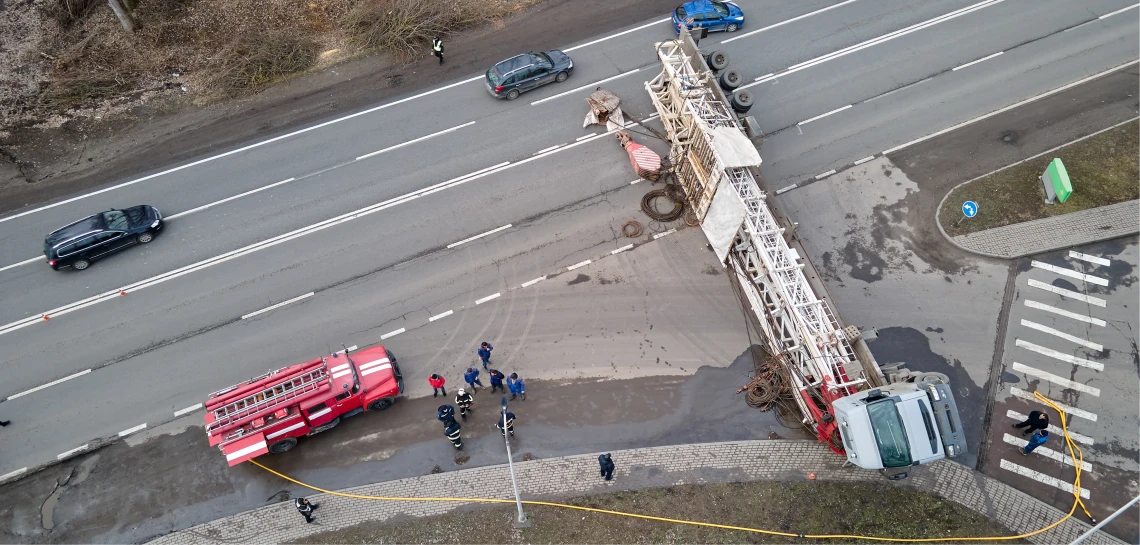
Unfortunately, trucking companies can fire their employees in case of minor or major truck accidents.
Many times trucking companies choose a three-strike rule. It means that if truck driver after facing 3 minor accidents will face disciplinary action or termination.
Every day, truck drivers face a myriad of risks on the road. The American Trucking Association reports a substantial number of approximately 3.36 million truck drivers in the United States. The aftermath of a truck accident presents various scenarios and potential consequences for drivers and the communities involved.
- Scenario 1: Employer’s Privilege
- Scenario 2: Independent Contractor
- Scenario 3: Wrongful Termination
Scenario 1: Employer’s Privilege
According to the Federal Motor Carrier Safety Administration (FMCSA), severe truck crashes per million people rose to 13.65 in 2019, marking an increase from 2010. The unpredictable nature of these accidents prompts truck drivers to grapple with uncertainties, asking questions like, “What if the accident isn’t my fault?” and “What are the consequences if there are fatalities?”
Trucking companies, wielding the right to terminate employees, base their decisions on various factors. Violent actions, for instance, are clear grounds for termination. Beyond personal concerns, drivers must consider the potential legal ramifications and damage to a company’s reputation in the event of a crash.
A negative public perception may pressure the company to part ways with the driver to safeguard its overall standing. The intricate interplay of legal, financial, and public relations factors adds complexity to the aftermath of truck accidents.
Scenario 2: Independent Contractor
Ensuring safety measures is crucial in preventing accidents, regardless of responsibility. Truck drivers are often responsible for various aspects, from regular maintenance to insurance. Drivers can face termination if they violate company rules, engage in negligent actions, or fail to adhere to safety protocols.
What Are The Reasons For The Termination Of Truck Drivers?
Valid reasons for termination include
- Driving under the influence (Learn more about some facts on drinking and driving)
- Distracted driving
- Traffic rule violations
- Violence
- Lacking a commercial driver’s license (CDL)
Reckless actions that lead to damages and injuries may prompt a trucking company to terminate a driver, safeguarding both safety standards and the company’s reputation.
Scenario 3: Wrongful Termination
Legal action against a trucking company can stem from fundamental issues, such as forcing drivers to operate in unsafe weather conditions. In cases where a driver is subsequently fired for negligence after an accident, it may lead to potential legal consequences without considering the circumstances. (Learn more about what is negligence in truck accident cases?)
Wrongful termination claims may arise in situations involving
- Retaliation, where the truck driver faces adverse actions post-accident
- Discrimination based on various factors like race or gender
- If contract clauses specify protection from termination for a specific duration, any breach could be grounds for legal action.
Truckers must know their rights and understand potential claims impacting their careers and futures. Knowing how to navigate such situations is crucial for protecting their rights and ensuring fair treatment.
Important Facts For Truckers After a Truck Collision
After a truck accident, essential facts for truckers include:
- Recognizing that police reports may not definitively determine fault
- Motor carriers might shift blame to employees when evidence is unclear, and insurance companies, primarily focused on minimizing compensation, may not prioritize the rights of truck drivers
- Truckers should be aware of these dynamics and take proactive steps to protect their interests and rights following an accident
How Can a Truck Accident Lawyer Help You?
A truck accident attorney can guide you through the legal complexities if you’re involved in a truck wreck. They investigate the incident, gather evidence, and determine liability.
An experienced law firm will navigate negotiations with insurance companies, ensuring fair compensation for damages. They represent you in court, presenting a compelling case for pursuing compensation if needed.
